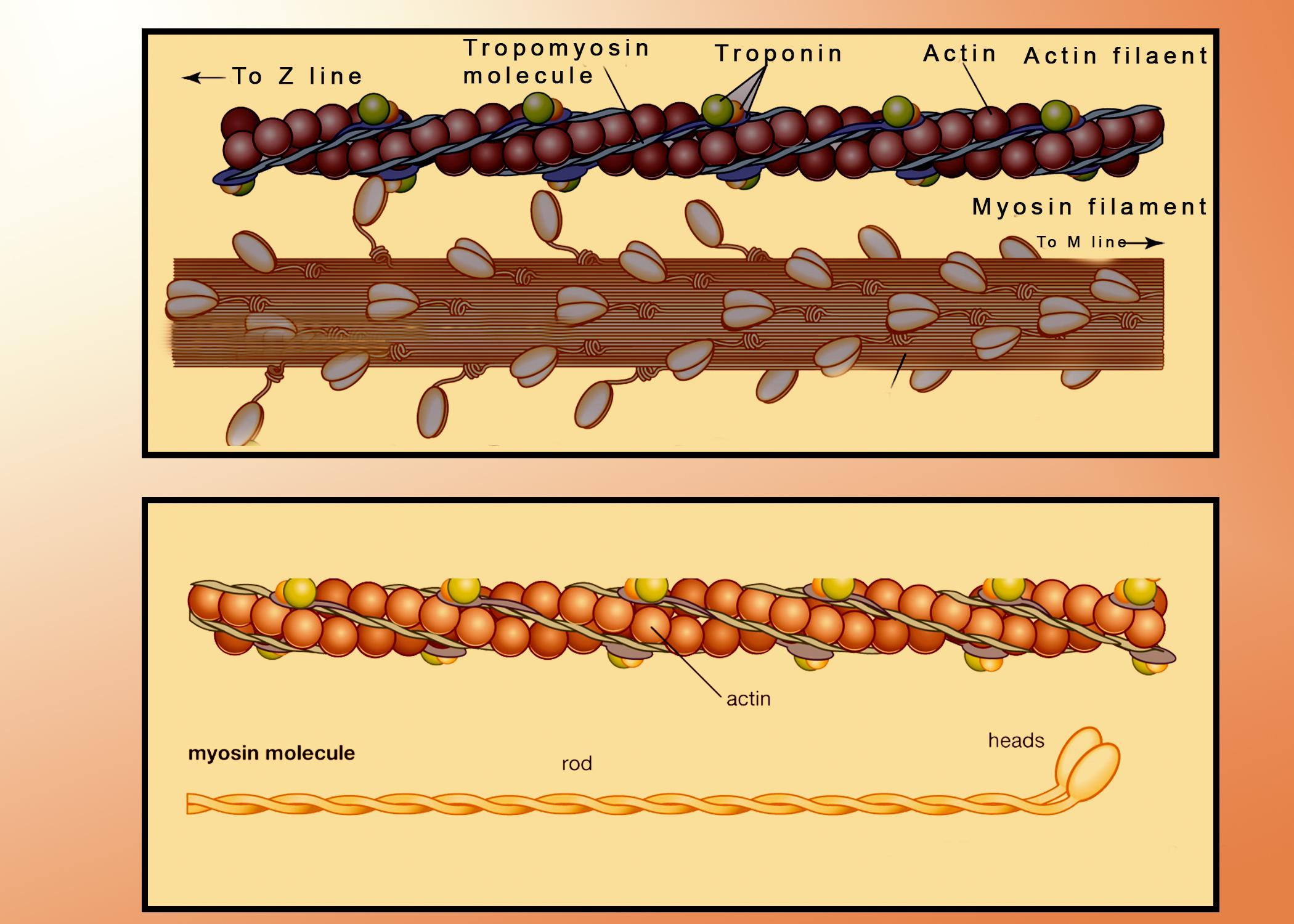Question
Question: Which of the following are contractile proteins contribute 55% of muscle protein by weight? a)Trop...
Which of the following are contractile proteins contribute 55% of muscle protein by weight?
a)Tropomyosin
b)Troponin
c)Myosin
c)Actin
Solution
The aggregate sum of muscle proteins in well-evolved creatures, including people, surpasses that of some other protein. This protein is also called by another name thick filament that works in the contraction and relaxation of the muscles.
Complete answer:
Myosin, which can be taken out from new muscle by adding it to a chilled arrangement of weakening potassium chloride and sodium bicarbonate, is insoluble in water. Myosin, arrangements of which are exceptionally gooey, comprises an extended—likely twofold abandoned—peptide chain, which is wound at the two closures so that a terminal globule is framed. The length of the particle is around 160 nanometres and its normal width 2.6 nanometres.
Trypsin parts myosin into huge pieces called meromyosin. Myosin contains numerous amino acids with emphatically and adversely charged side chains; they structure 18 and 16 percent, individually, of the all outnumber of amino acids. Myosin catalyzes the hydrolytic cleavage of ATP (adenosine triphosphate). A little protein with properties like those of myosin is tropomyosin. It has a subatomic load of 70,000 and measurements of 45 by 2 nanometres. In excess of 90% of its peptide chains are available in the α-helix structure.
Additional Information: Around 40% of the body weight of a solid human grown-up weighing around 70 kilograms (150 pounds) is a muscle, which is made out of around 20% muscle protein.
The globulin part contains myosin, the contractile protein, which additionally happens in blood platelets, little bodies found in the blood. Comparative contractile substances happen in other contractile structures; for instance, in the cilia or flagella (whiplike organs of velocity) of microorganisms and protozoans. Rather than the scleroproteins, the contractile proteins are solvent in salt arrangements and defenseless to enzymatic assimilation.
The energy required for muscle compression is given by the oxidation of starches or lipids. The term mechanochemical response has been utilized for this transformation of synthetic into mechanical energy.
Egg white like part of these proteins, contains different chemicals—phosphorylase, aldolase, glyceraldehyde phosphate dehydrogenase, and others; it doesn't appear to be engaged with compression.
So the correct answer is 'Myosin'.

Note: Fibrinogen, the protein of the blood plasma, is changed over into the insoluble protein fibrin during the coagulating cycle. The fibrinogen liquid acquired after the evacuation of the coagulation, called blood serum, is blood plasma short fibrinogen. The fibrinogen substance of the blood plasma is 0.2 to 0.4 percent.
